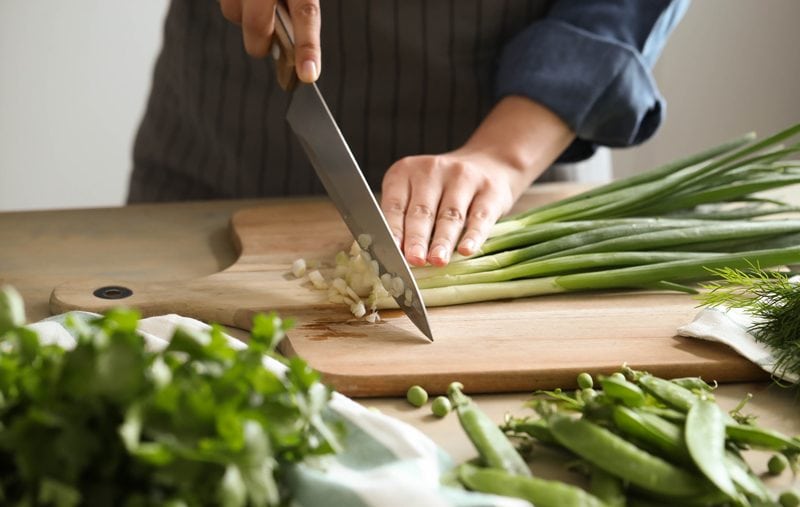How to Get Rust Off a Japanese Knife: Top Tips for BBQ Enthusiasts
Written By James Morgan
When it comes to barbecue enthusiasts, having a well-maintained knife is crucial. It's not just about the cuts of meat you wield; its also about the tools you use. One of the common issues barbecue lovers face is rust on their beloved Japanese knives. In this guide, we will explore how to get rust off a Japanese knife using several effective methods. Whether youre a pitmaster or a weekend BBQ warrior, keeping your knives in pristine condition is essential.

Why Do Japanese Knives Rust?
Japanese knives, revered for their sharpness and precision, are often made of high-carbon steel. While this material delivers excellent cutting performance, it is also more prone to rust compared to stainless steel alternatives. The higher carbon content makes the blade harder but also more susceptible to oxidation, especially if not properly maintained.

Initial Steps Before Cleaning
Before you dive into the task of rust removal, its essential to assess the level of rust on your knife. Surface rust can often be handled with mild cleaning agents, while deeper, more stubborn rust may require specialized tools and techniques.
Tools You Will Need
- Soft cloth or sponge
- Rust erasers
- Baking soda
- White vinegar
- Lemon juice
- Toothbrush
- Protective gloves
An important thing to remember is to always wear protective gloves to avoid any accidents or injuries while cleaning. Safety first!

Method 1: Using Baking Soda
Baking soda is a household staple that can effectively help you get rust off a Japanese knife without causing damage to the blade.
Steps Involved
- Create a paste using baking soda and water.
- Apply the paste to the rusted areas of the knife.
- Use a toothbrush to scrub the rust gently.
- Rinse the knife thoroughly with water and dry it immediately.
Why Baking Soda Works
Baking soda is mildly abrasive and can break down the rust particles without scraping off the metal from the knife itself, making it a safe choice for delicate blades.

Method 2: White Vinegar Soak
White vinegar is another excellent option for rust removal. Its acidic properties help dissolve rust effectively.
Steps Involved
- Fill a container with white vinegar.
- Submerge the rusted part of the knife in the vinegar for a few hours.
- Remove the knife and scrub the rusted areas with a toothbrush or soft cloth.
- Rinse and dry the knife immediately.
Safety Warning
Do not soak the knife for too long as this can corrode the metal further. Always monitor the knife closely during the soaking process.
Method 3: Lemon Juice and Salt
Lemon juice combined with salt can also work wonders in removing rust from a Japanese knife.
Steps Involved
- Sprinkle salt over the rusted section of the knife.
- Squeeze fresh lemon juice onto the salt-covered rust.
- Let it sit for a few hours for the acid and salt to work on the rust.
- Scrub the rust gently using a toothbrush.
- Rinse and dry the knife thoroughly.
Why This Works
The acidity in the lemon juice breaks down the rust, while the salt acts as an abrasive element, making it easier to scrub off.
Post-Cleaning Care
Once youve successfully removed the rust, its essential to prevent it from coming back. Here are some valuable tips:
- Always dry your knife thoroughly after washing.
- Consider applying a light coat of mineral oil to protect the blade.
- Store your knife in a dry place, preferably in a knife block or on a magnetic strip.
- Avoid leaving your knife in acidic or salty environments for extended periods.
Additional Tips for Maintaining Japanese Knives
Maintaining a Japanese knife goes beyond just removing rust. Here are some general tips for keeping your knife in top condition:
Sharpening Techniques
Regular sharpening is crucial for maintaining the knifes edge. You can refer to this guide on how to sharpen your knife effectively.
Proper Storage
Proper storage is just as important as regular cleaning. Consider using a knife block, magnetic strip, or an in-drawer knife holder to protect the blade. Read more on proper knife storage.
Handling Techniques
Handle your Japanese knife with care. Avoid using it to cut through bones or frozen foods, as this can damage the blade. For more tips on proper knife handling, you can read here.
Common Myths and Misconceptions
Lets debunk some common myths about rust and Japanese knives:
Myth 1: Stainless Steel Japanese Knives Don't Rust
While stainless steel knives are more resistant to rust, they are not entirely immune. Proper care is still required to keep them rust-free.
Myth 2: Rust Means the Knife is Ruined
Finding rust on your knife is not the end of the world. With the right methods, you can restore it to its former glory.
FAQ
Can I use a scouring pad to remove rust?
No, using a scouring pad can cause scratches and damage the blade. Its better to use softer materials like a sponge or toothbrush.
Is it safe to use chemical rust removers?
Chemical rust removers can be effective but should be used with caution. Always read the label and follow the manufacturers instructions.
How often should I check my knife for rust?
Its good practice to check your knife for signs of rust every time you use it. Regular maintenance ensures a longer lifespan for your blade.
As an Amazon Associate, I earn from qualifying purchases.



